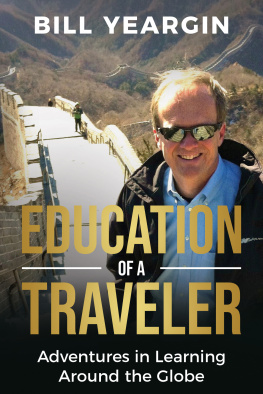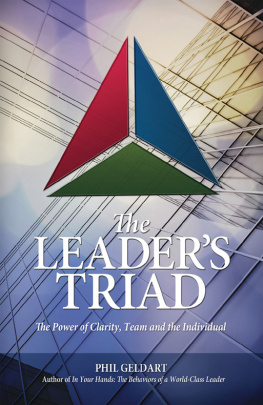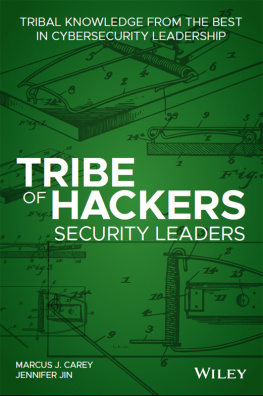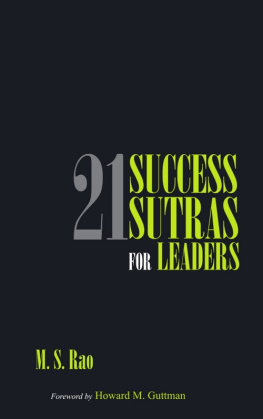Education
of a
CEO
Lessons for Leaders
Bill Yeargin
Copyright 2021, Bill Yeargin
All rights reserved. No part of this book may be used or reproduced by any means, graphic, electronic, or mechanical (including any information storage retrieval system) without the express written permission from the author, except in the case of brief quotations for use in articles and reviews wherein appropriate attribution of the source is made.
Published in the United States by
Ignite Press
5070 N 6th St. #189
Fresno, CA 93710
www.IgnitePress.us
ISBN: 978-1-953655-74-5 (Amazon Print)
ISBN: 978-1-953655-75-2 (IngramSpark) PAPERBACK
ISBN: 978-1-953655-76-9 (IngramSpark) HARDCOVER
ISBN: 978-1-953655-77-6 (E-book)
Because of the dynamic nature of the Internet, web addresses or links contained in this book may have been changed since publication and may no longer be valid. The content of this book and all expressed opinions are those of the author and do not reflect the publisher or the publishing team. The author is solely responsible for all content included herein.
Library of Congress Control Number: 2021905062
Cover design by Kathleen Cantwell
Edited by Samantha Maxwell
Interior design by Jetlaunch Layout Services
OTHER BOOKS BY BILL YEARGIN
Yeargin on Management
What Would Dad Say? Now That Hes in Heaven
Making Life Better: The Correct Craft Story
COMING LATER IN 2021
Education of a Traveler: Adventures in Learning Around the Globe
To the wonderful people who have worked beside me through both good and tough timesto the degree I have enjoyed any success, it is because of you, my teammates.
Acknowledgements
To my cousin, thought partner, and editor Alex Gurtis. And, to Leigh. Your comments were all appreciated and made this book much better.
Table of Contents
Introduction: How I Got Here...
I am a CEO but, strangely enough, I never aspired to be one.
Yet, here I am. For the past fifteen years, I have been blessed to lead Correct Craft, in my opinion, the worlds best organization and team. Many of my team members are smarter and more talented than I am. I hope they dont realize how much, but they likely do.
There are a million reasons why I should not be a CEO. I am self-deceived and can be easily fooled. For example, I sometimes feel one hundred percent right when I am actually one hundred percent wrong. I have a larger-than-normal number of relationships, but they dont tend to be deep. I can manage details when necessary but dont really like them. I can be overly analytical, which causes me to sometimes disregard the feelings of others, and I am generally impatient. Occasionally, I suffer from imposter syndrome, and other times, I get way too high on myself.
Fortunately for me, I have been exposed to numerous situations and experiences that have provided me a unique education as a CEO. I have visited over 110 countries, some of which I will discuss in my next book, Education of a Traveler. I have bought companies, sold companies, led turnarounds, and navigated organizations through both good times and bad. I have been privileged to study at some of the worlds most respected universities, including Harvard, Stanford, and MIT, and Ive met some of the worlds most successful business leaders.
My insatiable desire to learn through reading has resulted in my consumption of innumerable business and leadership books.
I know the preceding paragraphs sound unbearably haughty, but Im not writing them to praise myself. I am not claiming to be a great leader either, but I have had a great education in leadership.
This is the hardest chapter for me to write, and I would rather just leave it out, but some readers may want some background on me. I promise that the rest of the book is more interesting than this. If you know me well (or just dont care about my background), you might want to skip the rest of this chapter.
I grew up in South Florida, and I dont remember having career aspirations until middle school when I decided to become a pastor. I attended a small Christian school that gave significant affirmation to young men who wanted to become church leaders, and that seemed like the path for me. Later, in high school, I decided business was more to my interests, but I didnt understand what that meant other than a way to make money. Still, even in high school, I thought I might have a knack for it.
On my sixteenth birthday, I hit the job market and quickly landed a position as a bagboy with Pantry Pride, a local grocery store. I quickly learned that it only took four minutes from my day to punch in two minutes early and punch out two minutes late, and the extra four minutes made a big impression on the store bosses, who were used to dealing with teens milking the system in the other direction. I also learned that its easier to be busy than to look busy. The seeds for both ideas had been planted by my dad, and for my first few weeks at the store, it seemed ridiculously easy (even for a sixteen-year-old) to impress the bosses.
Pantry Pride provided a lot of opportunities in the weeks, months, and eventually years ahead. Before graduating from high school, I was given the responsibility to manage the store two nights a week. My mom was proud to shop and see her sons name on the sign as night manager on Tuesday and Thursday nights. I thought it was pretty cool, too.
My high school years were exciting and fun, but I was not particularly focused on studying or becoming a stellar student. Lackluster study habits combined with a lack of desire to leave home resulted in me attending my local community college; it seemed to make sense. There, I met John Peterson.
John Peterson was a retired CPA (certified public accountant) who taught my accounting class at Palm Beach Community College. He had concluded a successful career and was giving back by investing in students like me. Mr. Peterson convinced me that the best way to ensure a successful career was to major in accounting. He said that as an accountant, I would never want for a job, and my accounting knowledge could be leveraged as a platform into any other area of business. He sold me, and from that freshman accounting class through the rest of college, I was determined to become a CPA.
As an aside, I deeply appreciate the investment John Peterson made in me, and I rarely refuse an opportunity to speak with college students, hoping I can inspire them too. Though I am not wired to be an accountant, I was a pretty good one. I quickly moved up the ladder, and accounting provided a great platform for my career and CEO education.
After completing my bachelors degree in accounting at Florida Atlantic University, I was very fortunate, despite what I thought was a horrible interview, to land a job at the largest CPA firm in the world, Coopers & Lybrand. By twenty-one, I had graduated from college and was working for a great company. I was on my way.
I did have one huge hurdle, though. I needed my CPA license. At the time I took the CPA exam, it was a two-and-a-half-day test separated into four parts. Security was strict at the exam center and included bathroom monitors to make sure we were not cheating. It was a brutal three days, but after finishing the test, I planned to enjoy a weekend cruise with my friends who also took the exam. Nopeno cruise for us. I got home around eight p.m. the Friday night of the exam and slept until noon the next day; I was mentally and emotionally exhausted.








